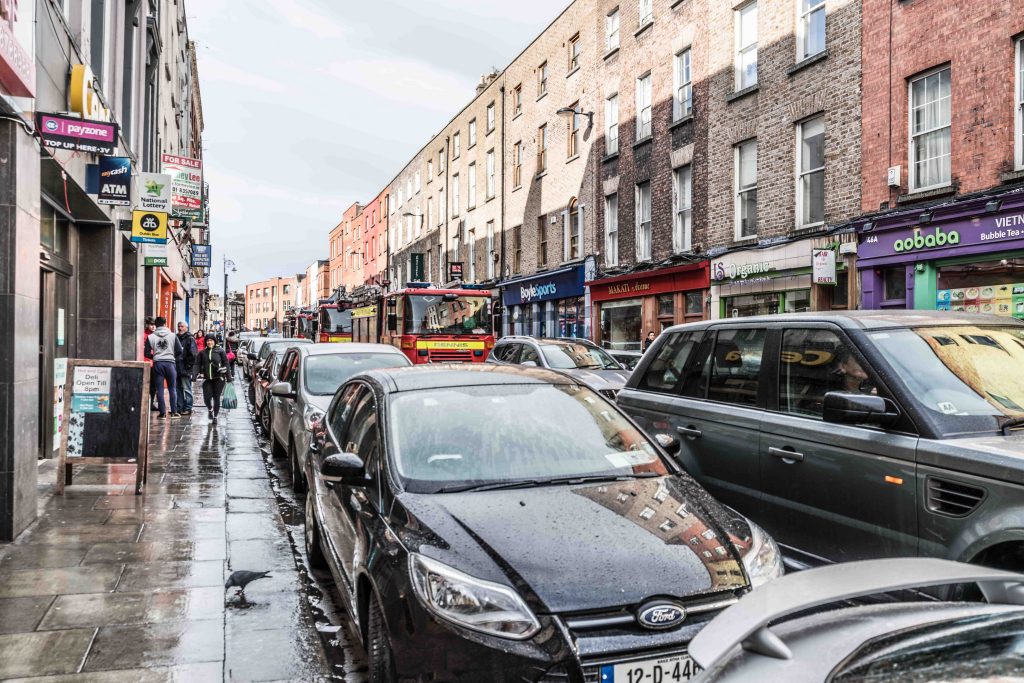Volkswagen to meet Greenpeace over air pollution concerns

August 21st, 2018
The motor giant Volkswagen (VW) has agreed to meet Greenpeace following a protest in its headquarters in the UK yesterday over air pollution concerns.
Activists and medical professionals blocked the company’s office in Milton Keynes urging it to take action against air pollution caused by diesel cars.
The NGO has asked VW for two years to ditch diesel due to the air pollution crisis. The protestors were demanding a face to face meeting with the company’s managing director, Paul Willis.
More than 11,000 people emailed Mr Willis yesterday, according to Greenpeace, and as a VW has agreed to meet with the NGO. “Thanks to the thousands of you that tweeted and emailed. Let’s keep the pressure on,” the NGO said on social media.
“As the UK’s biggest seller of diesel cars, VW is complicit in an air pollution crisis that’s filling up emergency departments and GP surgeries… VW sold us a lie about diesel being clean. Its diesel addiction is seriously harming people’s health,” said clean air campaigner Mel Evans.
Four doctors set up an impromptu diesel air pollution clinic outside VW’s offices to take lungs and blood pressure tests. Some people from VW even did the health check and were engaging to talk about the issue, said one of the doctor in a live video published by Greenpeace UK.
“I spend most of my day seeing people affected by [respiratory diseases]. You just feel that you send them back into the environment that made them ill… Doctors have been saying for many years that it’s time to get rid of diesel,” the doctor said.
According to a VW spokesperson, the company has launched the most comprehensive electrification initiative in the automotive industry and would bring 80 new electric vehicle models to its range by 2025.
BREAKING: medics & Greenpeace activists are shutting down @UKVolkswagen’s HQ & turning it into an emergency diesel pollution clinic. They’re calling on VW to #DitchDiesel because it’s making our air dangerous to breathe pic.twitter.com/APkm5X88wg
— Greenpeace UK (@GreenpeaceUK) August 20, 2018
Dieselgate 2.0
The Dieselgate scandal in 2015 revealed that VW had covered up the true levels of nitrogen dioxide (NO2) emitted by their diesel cars. Last June, they recognized their transgression and accepted to pay the largest penalty seen in Europe, a fine of one billion euros.
Daimler, the parent company of Mercedes, has also been accused of having equipped some of its diesel cars with software able to falsify the emissions levels. On June 11, the German Minister of Transports recalled 774,000 vehicles in the country.
Six European countries were referred to Europe’s highest court last May over air pollution issues. France, Germany and the United Kingdom exceeded the legal limit for NO2 emissions. Hungary, Italy and Romania had concerning air concentration of particulate matter (PM).

Dublin Fire Brigade stuck in traffic on Capel St, Co Dublin Photo: William Murphy
Ireland and diesel
An incentive to buy diesel vehicles over petrol is provided via tax advantages on using diesel fuel in Ireland. The government and lobbies insisted on the low emission of carbon dioxide without addressing other air pollutants.
Councillor David Healy from the Green Party told The Green News: “The policy to change motor tax to emissions-based systems was based on greenhouse gas emissions. While this gave the greatest incentive to electric and hybrids cars, it favoured diesel cars over petrol.”
“Diesel engines need to be phased out. We should be striving for the lowest possible emissions as a matter of urgency,” added Mr Healy.
“We’ve proposed that every petrol station is required to provide electric vehicle charging stations and that planning issues which prevent the installation of charging points at people’s homes are addressed,” he said.
https://twitter.com/GreenpeaceUK/status/1031561910385303552
Health issues
Particulate matter is so small that it can pass through our body tissue and have disastrous consequences on human health following long-term exposure. It has been classified as carcinogenic by the UN’s International Agency for Research on Cancer.
“Poor air quality is a serious public health problem in Ireland. Due to the prevailing winds, our air quality is much better than in many countries but still a major cause of premature mortality,” said Mr Healy.
Indeed, air pollution causes 1,500 premature deaths per year in Ireland, according to the Environmental Protection Agency. In 2016, the World Health Organisation guideline values were exceeded for PM and NO2 in several sites.
Catherine Simon (22) is a French student suffering from asthma and allergies. Her allergies can trigger asthma attacks and are mostly due to air pollution, she told The Green News.
Travelling to big cities has an impact on the student’s respiratory diseases. “When I was in Paris last summer, my eyes were itching and burning. I had more trouble breathing and I couldn’t stop sneezing,” she said.
She described how these attacks make her feel: “It’s like someone is pushing on your ribcage. I’ve trouble breathing. I’m in pain and my airways are burning. I feel weak like if the energy of my body has been taken away from me.”
Catherine came to visit Ireland last winter. She felt there was less pollution than in France. “Here, my asthma was mostly due to humidity,” she said.
[x_author title=”About the Author”]







